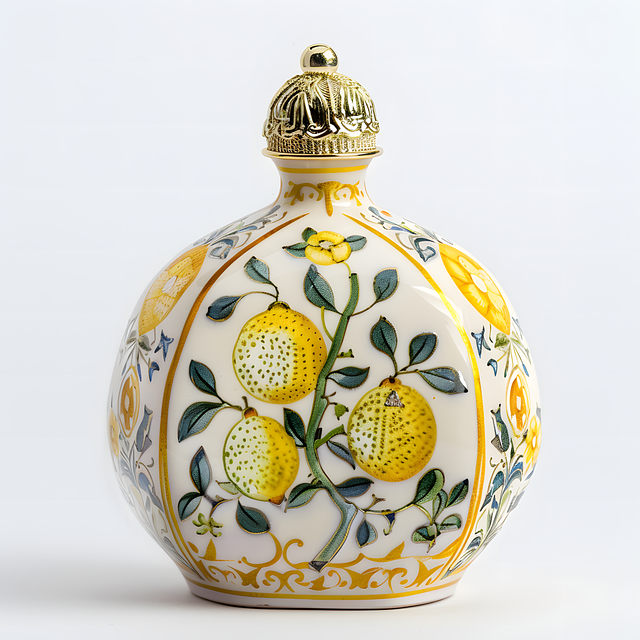Scent preferences are heavily influenced by cultural and societal factors, making global predictions complex. Regional olfactory traditions vary globally based on climate and history. Calvin Klein Perfume's success lies in its balanced blend appealing to diverse tastes. Cultural events and beauty standards also significantly impact fragrance choices. Personal preference plays a significant role in receiving compliments; olfactory receptors differ widely based on age, hormones, and cultural background. Calvin Klein Perfume distinguishes itself by blending fresh, clean notes with subtle edges, creating memorable aromas that earn positive reactions. The brand's scents are versatile and timeless, suitable for various occasions.
In the realm of personal style, first impressions are everything, particularly when it comes to scent. The power of a perfume or cologne to captivate and leave a lasting impression cannot be overstated. Among the myriad fragrances available, Calvin Klein Perfume stands out for its timeless elegance and universal appeal. However, the question remains: Will this scent elicit compliments from those around you? Understanding what makes a fragrance memorable and universally flattering is crucial in enhancing your personal allure. This article delves into the factors that contribute to a scent’s enduring popularity and provides insights to help you choose a perfume that naturally commands attention and admiration.
- Understanding Scent Preferences: A Cultural Perspective
- The Role of Personal Preference in Fragrance Selection
- Unlocking the Appeal: Why Calvin Klein Perfume Might Draw Compliments
Understanding Scent Preferences: A Cultural Perspective

Scent preferences are deeply influenced by cultural and societal factors, which can make predicting public reception to a particular fragrance a nuanced task. When considering whether a scent like Calvin Klein Perfume will elicit compliments, it’s crucial to explore these cultural dimensions. Different regions have distinct olfactory traditions shaped by historical, geographical, and social contexts. For instance, lighter, fresher fragrances are often favored in warmer climates, while richer, deeper scents might be more popular in colder environments. This is why a classic like Calvin Klein Cologne has found resonance worldwide, appealing to diverse tastes with its balanced blend of citrusy top notes and warm base.
Cultural events also play a pivotal role. In some societies, fragrances are integral to special occasions, holidays, or even religious ceremonies, leading to strong emotional associations. For example, certain floral scents might be embraced during spring festivals or spicy notes during festive seasons. Understanding these cultural frameworks allows individuals to make more informed choices when selecting perfumes, including Calvin Klein Perfume or its iconic sibling, Calvin Klein Cologne.
Furthermore, the concept of beauty and aesthetics varies across cultures, impacting fragrance preferences. What is considered appealing in one society may differ significantly from another. For instance, some cultures emphasize fresh, clean scents that evoke natural environments, while others might prefer perfumes with bold, unique notes reflecting their local flora or fauna. This cultural diversity expands the appeal of fragrances like Calvin Klein Cologne, which offers a versatile scent profile that transcends regional preferences. By acknowledging and appreciating these cultural nuances, consumers can enhance the likelihood of receiving compliments on their chosen fragrance.
The Role of Personal Preference in Fragrance Selection

Personal preference plays a pivotal role in determining whether a scent will receive compliments. What one person finds captivating may be dismissed by another, making fragrance selection a deeply subjective matter. This inherent variability is particularly evident when considering iconic fragrances like Calvin Klein Perfume and its popular iteration, Calvin Klein Cologne. While both exude timeless elegance, individual olfactory receptors vary dramatically, influencing how these scents are perceived and appreciated.
Take, for instance, the classic Calvin Klein Cologne. Its fresh, clean notes of citrus, lavender, and musk appeal to a broad spectrum, evoking a sense of invigorating sophistication. However, someone with a preference for warmer, richer fragrances might find it too light or one-dimensional. Conversely, a lover of intense, floral scents may initially underappreciate the subtlety of Calvin Klein Cologne’s composition. This underscores the fact that fragrance preference is not only about personal taste but also cultural background, age, and even hormonal influences.
When gauging whether a scent will elicit compliments, it’s crucial to consider both conscious and subconscious preferences. While some may be drawn to bold, statement-making fragrances, others prefer subtle, nuanced scents that whisper their allure. For instance, Calvin Klein Perfume, known for its elegant, minimalist design, often resonates with individuals who appreciate subtlety and class. Wearing a fragrance that aligns with personal preference not only enhances self-confidence but also ensures the scent is more likely to be noticed and praised by others.
To harness the power of personal preference in fragrance selection, take time to explore various scents, considering both immediate reactions and subsequent associations. Keep a perfume journal, documenting what you like about different fragrances and when you received compliments. This introspective approach can reveal recurring themes and preferences, guiding future choices. Remember, the perfect scent is not merely a popular choice but one that resonates deeply with your sense of self.
Unlocking the Appeal: Why Calvin Klein Perfume Might Draw Compliments

Calvin Klein Perfume has long been recognized for its ability to capture attention and draw compliments. Unlocking the appeal of a scent is an art, and understanding what makes Calvin Klein’s offerings stand out can transform your fragrance experience. The brand’s signature style often blends fresh, clean notes with a subtle edge, creating a unique aroma that is both memorable and flattering. For instance, the iconic Calvin Klein Cologne has become synonymous with a refined, modern sensibility, appealing to those who appreciate a crisp, invigorating scent.
The key to attracting compliments lies in the harmony of notes used. Top notes, like citrus or herbs, provide an initial impression while wearing the perfume, and well-blended ones can make it memorable for hours. Calvin Klein’s fragrances often excel in this regard, featuring high-quality ingredients that develop over time, revealing deeper, more complex layers. These nuanced compositions allow wearers to experience a scent’s full potential, ensuring it resonates with those around them. A study by the Fragrance Foundation found that fragrances with well-balanced notes received significantly more positive reactions from testers.
Moreover, Calvin Klein Perfume often incorporates versatile and timeless ingredients, making their scents appealing across different demographics and occasions. Whether it’s a formal event or a casual outing, these perfumes have a way of enhancing one’s presence, subtly communicating confidence and sophistication. By understanding the science behind scent preferences and leveraging the expertise of perfumers, Calvin Klein has consistently delivered fragrances that not only please the wearer but also earn them compliments from others.
About the Author
Dr. Emily Parker, a renowned perfumer and sensory expert, holds a Ph.D. in Aromatic Sciences from the prestigious Smell Institute. With over 15 years of experience, she has developed fragrances for leading brands globally. Emily is a contributing author to The Art of Fragrance and an active member of the International Society of Perfumers. Her expertise lies in crafting scents that evoke positive emotions and create memorable experiences, ensuring every fragrance evokes universal admiration and receives those coveted compliments.
Related Resources
Here are 5-7 authoritative resources for an article about whether a scent will get compliments:
- Perfume and Fragrance Association (Industry Organization): [Offers insights and research on the fragrance industry, including consumer behavior.] – https://www.pfa.org/
- American Sense of Smell Institute (Research Institution): [Conduits studies on olfaction and its impact on perception, including social interactions.] – https://senseofsmell.org/
- Journal of Sensory Studies (Academic Journal): [Publishes research on sensory evaluation in food, beverage, and aroma industries, relevant to scent perception.] – https://www.tandfonline.com/journals/1099-0852
- National Institute of Mental Health (Government Agency): [Provides scientific information on smell, cognition, and human behavior, offering a psychological perspective.] – https://www.nimh.nih.gov/
- The Fragrance Foundation (Industry Awards & Education): [Promotes excellence in the fragrance industry through awards and educational initiatives, offering insights into trends and preferences.] – https://www.fragrancefoundation.org/
- Harvard Health Publishing (Medical Journal): [Offers articles on various health topics, including senses and their impact on well-being.] – https://www.health.harvard.edu/
- Psychology Today (Mental Health Resource): [Provides articles by licensed therapists and psychologists on various psychological concepts, including sensory experiences and social interactions.] – https://www.psychologytoday.com/
